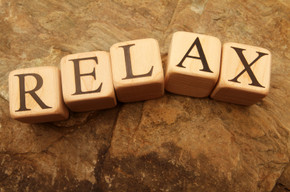
There’s nothing wrong with getting a prescription from a doctor to help relax or feel better about life. Most of us have done or will do just that at some point in our live: to help us get through a rough time, to provide some mental assistance while we learn new habits, to take the edge off when we have to work very long and hard. But there’s also something to be said for finding natural ways to relax. There aren’t many drugs out there that will be good for you in the long run if you have to be on them for years. So if you want to find a way to keep things on the rails, take the time to make these practices part of your life. They’ll do you a whole world of good.
1) Enjoy a Traditional Vice, but Occasionally. Prescriptions we get from the pharmacy are usually meant to be taken daily, or even several times daily. This may be necessary to achieve the full effect, but there are traditional alternatives that people have used to balance out for many centuries, and they work just as well today. Common legal alkaloids like nicotine and alcohol are very useful when properly used. Sometimes all you need to feel like yourself is a simple afternoon cigar, or a delicious cocktail after work. In an attempt to improve health and reduce abuse of both of these substances, America has lost much of the culture that formerly used them properly.
2) Music. If you read this website, you’re probably already a music lover. Music is a fascinating thing. Music is just vibrations in the air that travel from a speaker or a string, all the way to our ear drums. But people who master music learn to communicate their innermost feelings in the vibrations they produce with their instruments. These feelings are them communicable, and feeling the joy or sadness of another person in their songs often has a way of relieving our own pain. If you haven’t taken the time to really soak up your favorite music, or to find something new that you love, take an hour tonight and get cozy with some headphones.
3) Meditation. There are many meditation methods out there, but all of them include quietness and intention of mind. Perhaps the most universally effective intro to meditation is to lay quietly and pay close attention to mental and bodily sensations. Take careful note of any pain in any part of your body. Try to focus on the source of the pain, trying to determine why you are feeling it. You may notice fatigue or injury you’ve not noticed before. In the same way, search your mind for fears and anxieties. Sometimes these are anonymous and we can’t tell why they’re around. Try to follow your anxieties to their source. If you can’t find any reason why they exist, try to accept them as pure bodily sensations, and don’t worry about them any longer. If you can correct the cause of anxiety, pick the best course of action and commit to the change as soon as your meditation session is over.
